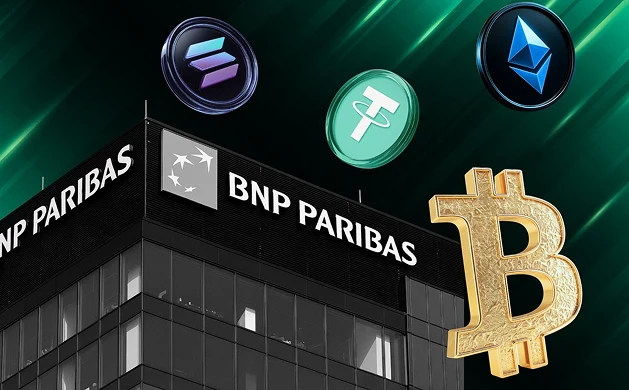What is ZetaChain?

Summary: ZetaChain is a platform that solves the fragmentation problem in crypto by connecting different blockchains and allowing their applications to interact without needing multiple deployments.
It simplifies asset management and transactions by removing the need for bridges and wrapped tokens, improving security and efficiency, all within one framework.
With its native ZETA token, it supports staking, governance, and developer incentives to build an interconnected blockchain ecosystem, while new users are motivated through airdrop programs.
What is ZetaChain?
ZetaChain is an EVM-compatible Layer 1 network that connects blockchains of all types, including non-smart contract ones like Bitcoin. The project introduces omnichain smart contracts which make it possible for decentralized applications (dApps) to interact with multiple chains as if they were one.
This innovation addresses long-standing cross-chain interoperability challenges, creating a unified crypto network. Built using the Cosmos SDK and secured by the Comet BFT consensus, ZetaChain ensures fast, secure, and reliable operations.
It offers developers tools to create omnichain dApps (odApps) that manage assets, execute logic, and exchange data across all connected chains without needing multiple deployments. ZetaChain simplifies onchain interactions by supporting direct value transfers and asset management across chains.

How Does ZetaChain Work?
ZetaChain's interoperability platform is a universal chain for protocols and users. Its architecture is efficient, secure, and accommodates cross-chain interactions through these key components:
- Chain Abstraction Framework (CAF): A system that allows developers to manage assets and deploy smart contracts that work across multiple blockchains, eliminating the need for chain-specific logic.
- Hyper-connected Nodes: Validators monitor transactions on all connected chains and use Threshold Signature Scheme (TSS) technology to securely sign and validate transactions.
- Omnichain Smart Contracts: ZetaChain supports smart contracts that interact with multiple blockchains, enabling developers to write unified application logic in one place.
- Cross-chain Messaging: Developers can send messages between chains using basic function calls, enabling multi-chain dApps to communicate and synchronize states.
- Managed External Assets: Validators manage native assets across connected chains, allowing for efficient liquidity orchestration and asset control.
- Atomic Transactions: Transactions are processed as a single unit, reducing gas fees, slippage, and vulnerabilities like race conditions.
- Fee Bundling: Users pay all transaction fees, including destination chain gas fees, in a single transaction, simplifying the process.
- Security Measures: ZetaChain ensures secure operations with real-time validations and built-in mechanisms to handle potential reorganization attacks on connected chains.

What is ZetaHub?
ZetaHub is the central interface for users to engage with ZetaChain. It combines tools for asset management, staking, governance, and cross-chain transactions into a single, user-friendly platform.
Through ZetaHub, users can track ZETA price trends, participate in staking to secure the network and earn rewards, and execute cross-chain transactions with native asset transfers.
The platform also allows users to set up and manage liquidity pools, earn XP through on-chain activities to unlock levels and claim rewards, and participate in governance by voting on network proposals.

Universal Smart Contracts Explained
ZetaChain’s Universal Smart Contracts (also called apps) is a disruptive feature that lets developers manage assets, data, and liquidity across all chains using a single contract. These contracts are supported by the ZRC-20 token standard and handle complex use cases like:
- No-Wrap Functionality: Unlike traditional crypto bridges, ZetaChain eliminates the need for wrapped assets, reducing risks and simplifying transactions.
- Native Bitcoin Support: Developers can build applications that use native Bitcoin for staking, lending, and DeFi.
- Developer Efficiency: Write one contract that manages assets across multiple chains, reducing overhead and development complexity.
- Atomic Logic: Transactions execute atomically, ensuring consistency and reducing vulnerabilities.
- Real-World Applications: Integrate multiple chains into DeFi, gaming, and other decentralized services, expanding blockchain usability.

ZETA Tokenomics
ZETA is the native token of the ZetaChain network and it's used to pay transaction fees, incentivize validators, burn tokens, facilitate cross-chain messaging, and support liquidity provisioning.
Additionally, users can stake ZETA to earn rewards and participate in governance to shape the project's direction. The total supply of ZETA tokens is 2.1 billion and it's distributed as follows:
- User Growth Pool (10%): 210,000,000 tokens allocated to grow the user base through airdrops, other community-focused campaigns. 4.5% unlocked at launch and monthly releases over 4 years.
- Ecosystem Growth Fund (12%): 252,000,000 tokens reserved for partners and developers. 1.5% unlocked at launch, with the remainder gradually unlocked over 42 months.
- Validator Incentives (10%): 210,000,000 tokens distributed through block emissions over 4 years to secure and sustain the network.
- Liquidity Incentives (5.5%): 115,500,000 tokens allocated to incentivize liquidity providers for ZetaChain’s EVM, ensuring stability and low-slippage transactions.
- Protocol Treasury (24%): 504,000,000 tokens reserved for community initiatives, with 2% unlocked at launch and the remainder gradually unlocked over 36 months after the first year.
- Core Contributors (22.5%): 472,500,000 tokens allocated to the founding team, unlocked gradually after the first six months, with a full vesting period of 3 years.
- Purchasers and Advisors (16%): 336,000,000 tokens allocated to early backers, subject to similar vesting schedules as the Core Contributors.
ZETA is deployed as an ERC-20 token on Ethereum and is traded on major crypto exchanges like Bybit, OKX, Coinbase, Kraken and Bitget (who also offer an yield product).

ZetaChain Airdrop
ZetaChain has redefined the concept of airdrops with its innovative Instant Rewards system, offering immediate token rewards for user participation. Building on a legacy of impactful reward programs, such as the 31,500,000 ZETA airdropped to 800,000 participants in 2021.
This approach addresses past issues like inflated expectations and lack of transparency. By integrating rewards with XP Status NFTs, ZetaChain ensures a sustainable and user-focused distribution. To start earning Zeta XP, users can go to ZetaHub and connect their crypto wallet for the first 1000 points.
Founders
ZetaChain was founded in 2021 by Ankur Nandwani, an ex-Coinbase employee who co-creator of the Basic Attention Token (BAT), alongside Panruo Wu, an early contributor to THORchain with extensive technical expertise in cross-chain systems.
Additionally, Nathalie McGrath, Coinbase’s first Head of People, and Juan Suarez, a former in-house counsel at Coinbase for nearly a decade, bring essential organizational strategy and regulatory expertise to the team.
Funding
As of December 2024, ZetaChain has raised a total of $27 million in a funding round completed on August 16, 2023. This round was led by Blockchain.com, with participation from Human Capital, Sky9 Capital, Jane Street Capital and VistaLabs among others.
In addition to this funding round, ZetaChain conducted an Initial Exchange Offering (IEO) in early 2024, via Gate.io and two launchpool events on OKX Jumpstart and Bitget, allowing participants to access tokens early through free allocation programs.

Bottom Line
ZetaChain is a successful project in the blockchain interoperability sector with a vision to one day connect all existing blockchain networks. Currently, the platform’s mainnet links five major chains: Base, Bitcoin, BNB Chain, Ethereum, and Polygon, providing a strong foundation and room for further expansion.
For investors, ZETA might be an intriguing low-to-mid-cap cryptocurrency. The token’s current price seems far below the technological advancements and innovative use cases that the project brings to the table, like omnichain smart contracts and cross-chain support without assets wrapping.
.webp)
Written by
Jed Barker
Editor-in-Chief
Jed, a digital asset analyst since 2015, founded Datawallet to simplify crypto and decentralized finance. His background includes research roles in leading publications and a venture firm, reflecting his commitment to making complex financial concepts accessible.


%2520(1).webp)





